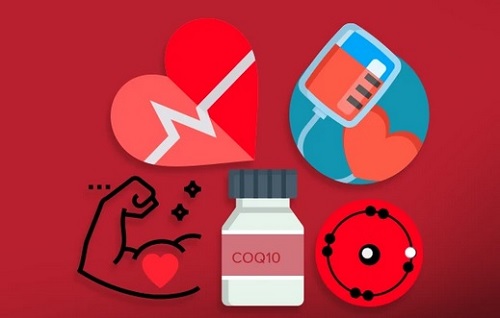Coenzyme Q10 is a ubiquitous factor present in cell membranes and mitochondria, both in its reduced and oxidized forms.
Its levels are high in organs with high metabolism such as the heart, kidneys, and liver because it acts as an energy transfer molecule but could be reduced by aging, genetic factors, drugs (e.g., statins), cardiovascular (CV) diseases, degenerative muscle disorders, and neurodegenerative diseases.

As CoQ10 is endowed with significant antioxidant and anti-inflammatory features, useful to prevent free radical-induced damage and inflammatory signaling pathway activation, its depletion results in exacerbation of inflammatory processes.

Therefore, exogenous CoQ10 supplementation might be useful as an adjuvant in the treatment of cardiovascular diseases such as heart failure, atrial fibrillation, and myocardial infarction and in associated risk factors such as hypertension, insulin resistance, dyslipidemias, and obesity.
Click HERE for further information.